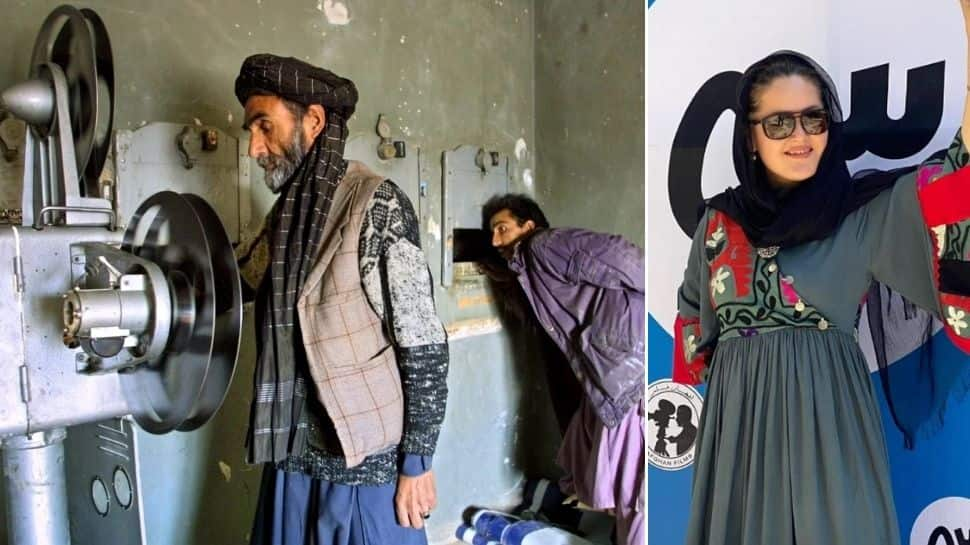New Delhi: Afghanistan faces a deep crisis as the Taliban takes over Kabul (the capital of the country) and US troops withdraw from the country after 2 decades. Former President Ashraf Ghani also fleed the country much like its fearful residents. The situation is dire and many world leaders and prominent personalities are signalling a huge humanitarian crisis.
Although the country is at a turning point currently, unfortunately, it has always suffered from political issues. Owing to these recurring problems, Afghanistanis could not flourish, express themselves and grow as artists, filmmakers, actors in the state.
However, the Afghan film industry does exist in a form. There's even an Afghan Film Organization (AFO) that exists and it is Afghanistan's state-run film company. The organisation was started in 1968 and Sahraa Karimi, who was the first female head of the company, currently leads it.
Lack of film institutes for students
In the 1960s-1970s, Soviet aid had attempted to fuel filmmakers in Afghanistan by offering cultural training and scholarships to students. However, apart from these scholarships, there were no official academic institutes of Film where students could enroll. Moreover, the disturbance during the 1990s when the Taliban was taking over after the Soviet exit made most filmmakers flee the country to neighbouring states for job opportunities.
Some of the most popular films in the 1980s-90s include Faraar, Hamaasa-e-Ishq, Saboor Sarbaaz, Khakestar, Akharin Arzoo, and Paranda Mohajer.
Taliban takeover in the 1990s
In 1996, when the Taliban conquered and claimed power on the country, the film industry was in shambles. Taliban rulers were against watching films and TV and imposed the same on civilians. A worker at the Afghan Film Habibullah Ali saved a huge part of the country's cultural history by burying thousands of films so that they wouldn't be destroyed by the Taliban.
The film 'Teardrops' revolving around a young man's struggle with drug addiction was the first release in the post-Taliban era. Bakhtar cinema was the first theatre to open in 2001 also in the post-Taliban era.
Women in Afghan cinema
Under the Taliban rule, women have had a huge disadvantage in terms of personal freedom and mobility. As per the film With Fire: Women Actors Of Afghanistan byAnneta Papathanassiou, women who indulge in acting are often viewed as prostitutes and judged greatly. They're told to abandon their careers and if they rebel, they may be beaten or given death threats from their family, friends.
















